Why Animal Products Cause Cancer In Humans - The Surprising Truth
Find out why animal products cause cancer in humans and how plant-based nutrition can lower your cancer risk.
Listen to the whole episode:
https://www.cancerwisdom.net/cwp2-humans-are-herbivores/
Humans Are Herbivores
Every being on earth has its perfect diet. We know that lions and cats thrive when they eat meat. Cows and horses feel better when they eat grass. We know that when we go to the gas station, our car needs a certain fuel, such as diesel, or gasoline. If we put the wrong type of gas in the car it will start to malfunction.
Our electric devices need to use the right plug or battery. But when it comes to our diet, many people are clueless. There are many opinions on the perfect human diet.
When you eat animal products, you become sicker. It's because we are herbivores and shouldn't eat animal products. If you look at your hand, you have no claws. Instead, we have nails and fingers perfect for grabbing and picking up fruits and vegetables.
Carnivores have an instinct to kill and can hear certain frequencies that we can't. If you look at carnivores' teeth, you can see that they have large canines, that they need to rip apart prey. Our canines are much smaller and our teeth are better at chewing food.
If you compare our jaw, you can see that when carnivores eat, their mouth can only go up and down because they need to eat meat and the best way is to use a chopping movement. Humans chew their food side to side like a cow because that's the best way to eat fiber-rich food.
Carnivores have a much bigger stomach because they only eat once a week, while we have a small stomach and need to eat every day. They also have short intestines to get rid of the rotten flesh fast. Humans have long intestines like a rabbit because you need long intestines to digest fiber. Carnivores like cats, also have fat and protein receptors on their tongue, but we don't.
Meat Causes Cancer In Humans
If you look at the science, it's clear that the more animal products that we eat, the more cancer and other diseases we develop. One thing in meat that can increase our cancer risk is insulin growth factor one, or IGF-1. It's a cancer promoting growth hormone which is more present in animal products.
Another problematic substance in meat is heterocyclic amines, HCAs. It's formed when we cook the meat. Another thing that can increase our cancer risk in animal products is heme-iron. There are two types of iron, heme iron, and non-heme iron.
Heme iron comes from animal products, while non-heme iron comes from plants. Heme iron can increase our risk of colorectal cancer, while non-heme iron doesn't have that effect.
Cholesterol Cancer Link & Milk Causes Cancer
Other problematic things in meat include cholesterol and saturated fat. Milk has a lot of IGF-1, fat, hormones, and cancer-promoting substances.
The best diet to avoid cancer is a whole food plant-based diet. It's a diet where you eat unrefined or minimally refined plants, based on fruits, vegetables, whole grains, and beans.
About us:
We teach the natural and holistic way to treat cancer without using toxic treatment methods.
Visit our blog: https://www.cancerwisdom.net
Download Free E-books from our Free Resource Library to learn how to treat cancer naturally.
http://bit.ly/2DGrN5N
Donation:
Bitcoin:
18jNdBFXcQoLUPkYDQJ4MAxwMuDLbSoVNi
Monero:
87RRQYwbnqAKzTpLKDn94fTcuNsAWXfxMCuq36ieG2jm9ALm1xB8eWd6zZKYLBBSL35XYkcuXcM9y4PcwyF7e32DDqjVbGN
Facebook:
https://www.facebook.com/cancerwisdom
Minds:
https://www.minds.com/cancerwisdom
Gab
https://www.gab.com/cancerwisdom
Steemit
https://steemit.com/@cancerwisdom
Bastyon
https://bastyon.com/cancerwisdom
Flote
https://flote.app/cancerwisdom
Bittubbers:
https://bittube.tv/profile/cancerwisdomtv
Bitchute:
https://www.bitchute.com/cancerwisdomtv/
Odysee
https://odysee.com/@cancerwisdomtv:f
Rumble:
https://rumble.com/cancerwisdomtv
Parler:
https://parler.com/cancerwisdom
Podcast:
https://www.cancerwisdom.net/podcast
The information is presented for educational purposes only and is not intended to diagnose, prescribe treat or cure cancer. This information is not intended as medical advice, please refer to a qualified healthcare professional.
-
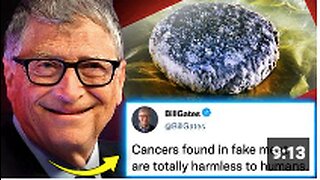 9:13
9:13
Biological Medicine
1 year agoBill Gates’ Lab Grown Meat Causes Cancer in Humans
3442 -
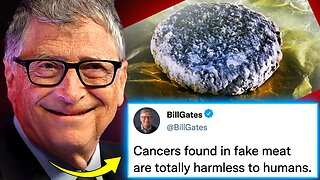 9:13
9:13
The People's Voice
1 year agoBill Gates’ Lab Grown Meat Causes Cancer in Humans
836K59 -
 9:13
9:13
The Real Raw News
11 months agoLab Grown Meat Causes Cancer in Humans
26.7K4 -
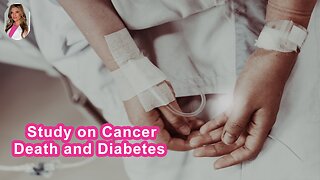 8:42
8:42
TheRealTruthAboutHealth
1 year agoStudy Shows People 50-65 With Higher Animal Protein Levels Led To 430% Increase In Cancer Death
85 -
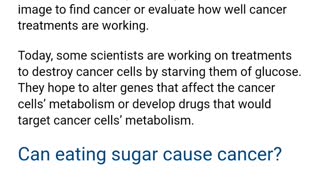 4:12
4:12
Fermenti
1 year agoSugar: gives mice cancer but not humans?
622 -
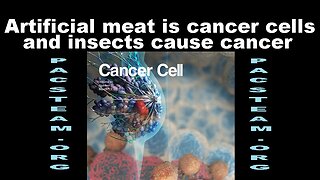 15:17
15:17
pacsteam.org
1 year agoArtificial meat is cancer cells and insects cause cancer
30 -
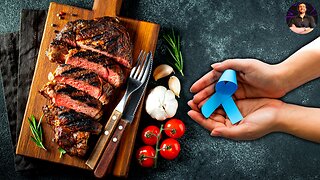 6:32
6:32
Don Khan Swaylo
4 months agoVegans BTFO'd! Super Nutrient Found in Beef & Dairy Products That Can Effectively FIGHT Cancer!
124 -
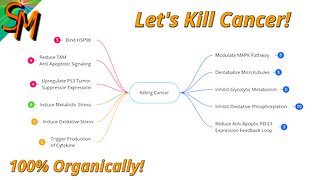 1:16:23
1:16:23
Snarky Guy
1 year agoKilling Cancer w/100% Natural Products
1834 -
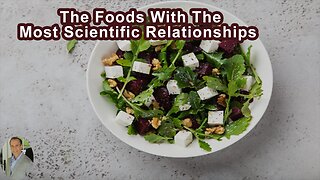 25:57
25:57
TheRealTruthAboutHealth
1 year agoThe Foods That Have The Most Scientific Relationships With Lower Rates Of Cancer And Longer Life
66 -
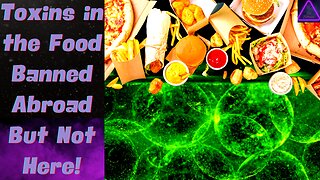 14:04
14:04
Don Khan Swaylo
1 year agoToxic, Cancer Causing Food Additives BANNED in Europe, But RAMPANT in the USA!
54